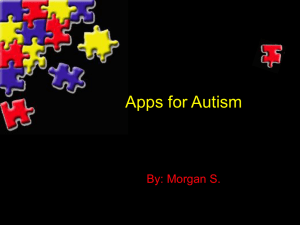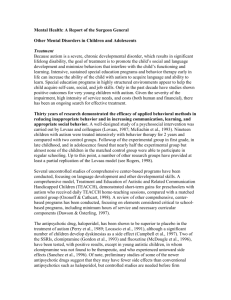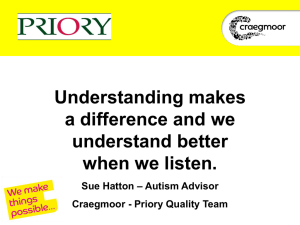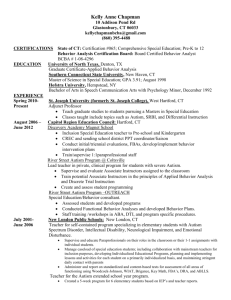Heavy pollution linked to risk of autism, study shows
advertisement
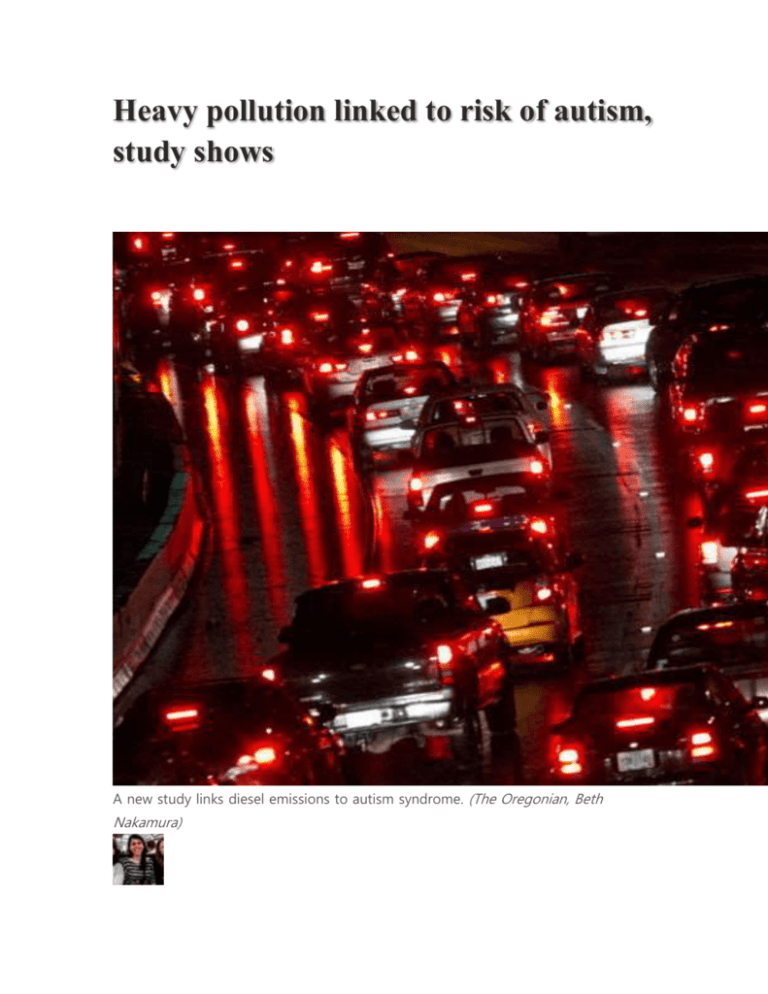
Heavy pollution linked to risk of autism, study shows A new study links diesel emissions to autism syndrome. (The Oregonian, Beth Nakamura) By Soumya Karlamangla, The Oregonian on June 17, 2013 at 9:01 PM, updated June 17, 2013 at 9:55 PM Pregnant women exposed to heavy diesel pollution are twice as likely to have a child with autism as those living in areas with low pollution, according to a study published today. Researchers from the Harvard School of Public Health found that diesel, mercury, lead, manganese and methylene chloride in the air significantly increased the risk of having a child with autism. The results add to a growing body of research that links air pollution to autism, said Andrea Roberts, the Harvard study's lead author. The data shows a strong correlation between pollution and autism, though it stops short of proving causation. Still, the research suggests something in the air could be harming fetuses. This is the first large national study to examine links between autism and air pollution. Researchers examined data from long-term study involving 116,430 nurses that began in 1989. Among that group, the authors studied 325 women who had a child with autism and 22,000 women who had a child without the disorder. They looked at associations between autism and levels of pollutants at the time and place of birth. They used U.S. Environmental Protection Agency data to estimate exposure and also adjusted for factors such as income, education and smoking during pregnancy. The study comes in the midst of efforts to slash Oregon's pollution levels -- Portland has the state's highest levels of toxic pollution -- in addition to a growing focus on autism and its causes as rates increase around the country. Anton Swenson, a Beaverton resident, said his son's Asperger disorder -- a milder form of autism -- took its toll emotionally and financially on his family. His son, now 20, needed extra health care and medicine. At home he pushed his parents away because he didn't want to be touched and showed signs of depression. A twin sister doesn't have autism. "It's bad enough for just the average kid going through certain stages, but you add something in like autism spectrum and you're in a whole other level, a whole other ball park," Swenson said. He and his wife lived in Northeast Portland about half a mile from Interstate 84 during her pregnancy. The diagnosis of autism in recent years almost doubled nationwide: one in 150 children had been diagnosed with autism in 2000, it was one in 88 children by 2008. The Harvard study identified diesel as the most dangerous pollutant when it comes to autism. Diesel particulate matter is not a single chemical, but a toxic mix of fine particles that generally come from diesel truck exhaust fumes or construction equipment that settles in the lungs. Exposure to high levels of diesel has been strongly linked to cancer and respiratory illnesses like asthma. The state Department of Environment Quality found in a 2012 report that Portland's level of diesel particulate matter, along with seven other toxics, was more than 10 times higher than the air quality health benchmark set by the state. But even that benchmark isn't strict enough, says Multnomah County Chairman Jeff Cogen. Both California and Washington set standards for reducing diesel pollution roughly 30 times more stringent than Oregon's, and Cogen thinks the state should follow our neighbors' lead. Diesel pollution is much stronger within 1,500 feet of major roads and highways, and minorities in the Portland metro area tend to be disproportionately affected by this kind of pollution. "Low-income people and people of color are exposed to much higher levels of diesel pollution," he said. "So it's not just a health issue, it's a social justice issue." And that social justice issue could have just gained a new set of implications. Oregon already has the second-highest rate of autism among students in the country, with its average double the national. However, that number is based on the type of education a student is receiving in school and unlike most states, Oregon does not require a medical diagnosis to join a special education class. The number of students identified as autistic rose in the 2011-'12 school year by 300 students, approximately 3 percent, according to data released by the Oregon Department of Education earlier this year. Roberts, the Harvard author, recommended that expectant mothers worried about autism take prenatal vitamins and eat food high in healthy oils, both of which have been shown to reduce risks of autism. She also said to stay away from cigarette smoke and to try to maintain a healthy weight to prevent gestational diabetes, also linked to autism. "Even though air pollution might be tough to avoid, there are other things that might be helpful and will help the baby anyhow, independent of autism," she said. The research being published online in the journal, Environmental Health Perspectives. --Soumya Karlamangla



